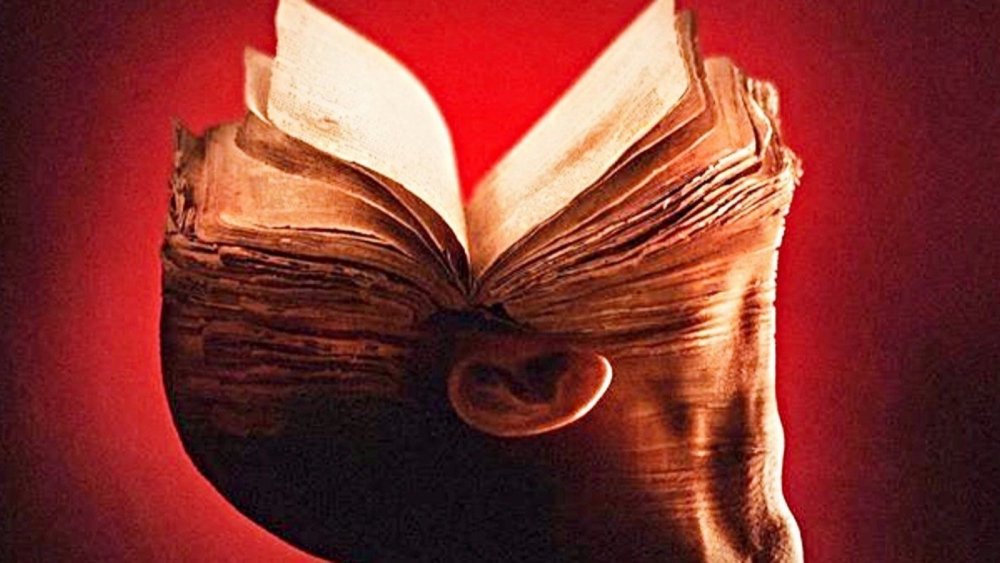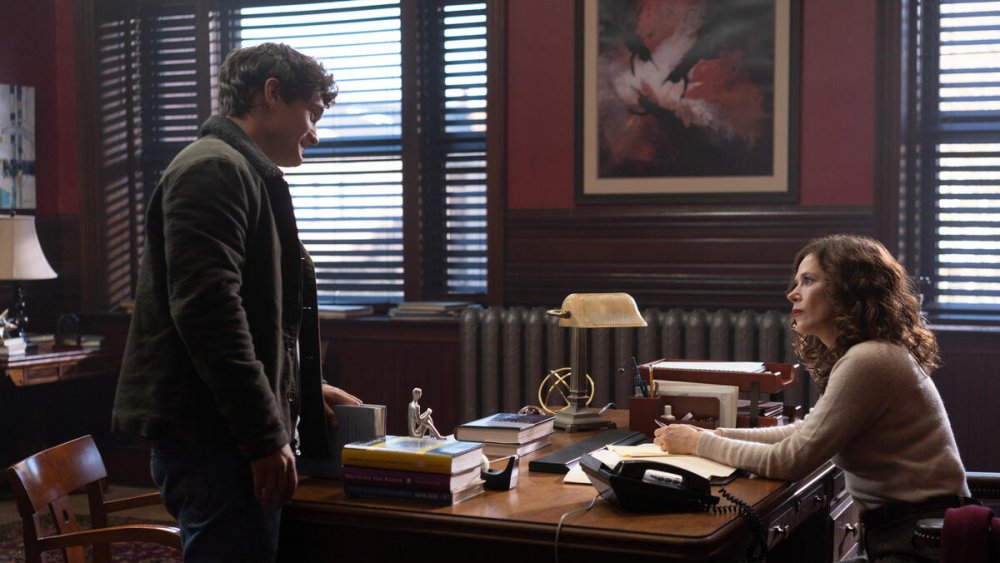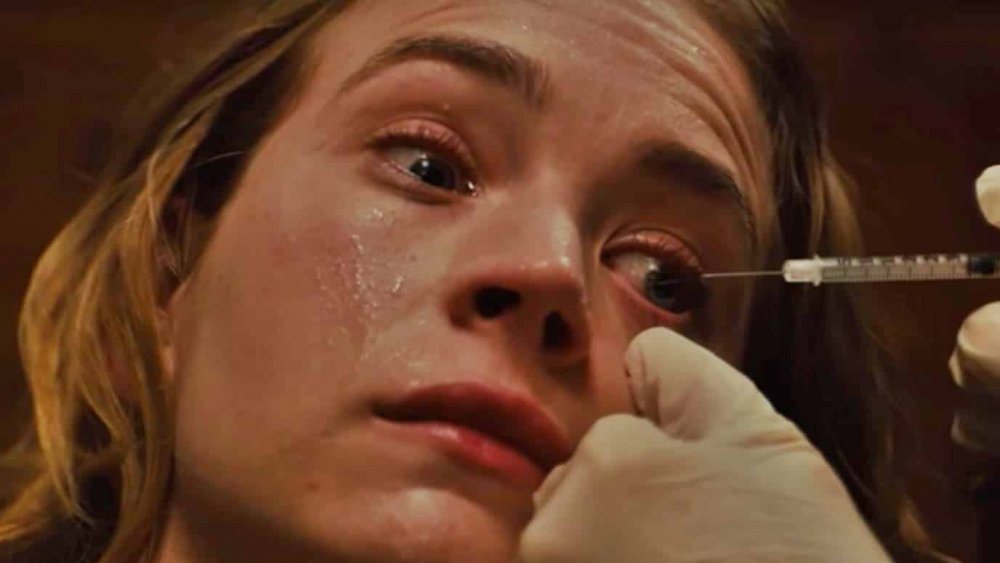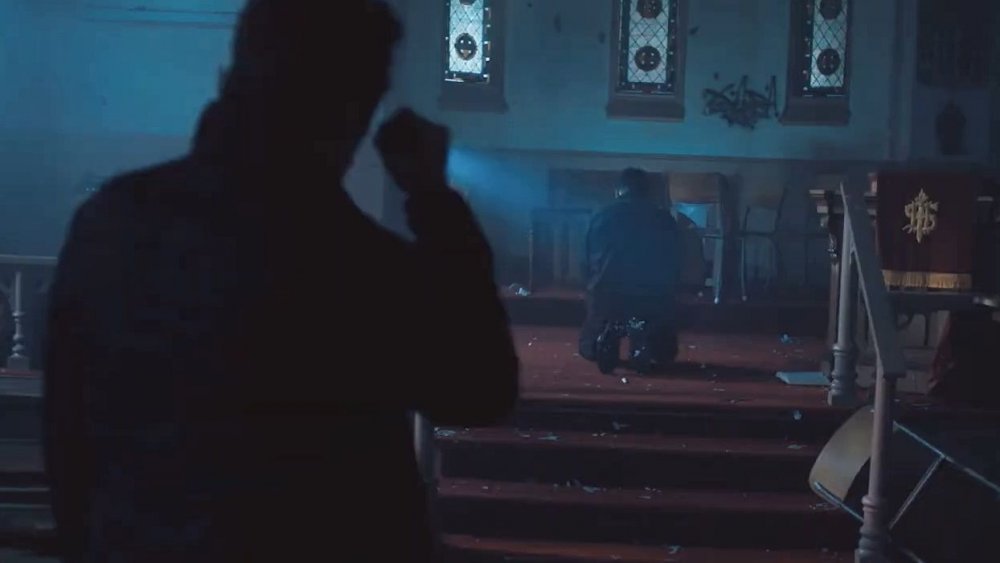Clive Barker And Brannon Braga On Bringing Books Of Blood To The Screen - Exclusive Interview
Clive Barker became one of the most important horror fiction writers of his generation when he arrived on the scene in 1984 with The Books of Blood, an acclaimed and groundbreaking anthology of horror and dark fantasy that would eventually encompass six volumes and provide the basis for films including Candyman, Lord of Illusions, The Midnight Meat Train, Dread, half of the Stephen King team-up Quicksilver Highway, Rawhead Rex, and more. Even now, more than three decades after they began publication, these works of evocative dark fantasy have the power to take hold of readers, which is why it's not at all surprising that filmmakers are still turning to them for new adaptations.
Which brings us to Books of Blood, the new Hulu original horror film directed by Brannon Braga and written by Braga and Adam Simon, based in part on conversations Braga and Barker had together about their love of horror fiction and horror anthologies in particular. Unlike previous adaptations of Barker's short fiction, which generally adapted a single story into a feature-length project, Books of Blood opts to tell three interconnected tales inspired by Barker's work. To make things even more surprising, while Barker readers will certainly recognize some characters and plot elements in the stories, others are brand new. It's all designed to evoke a certain Clive Barker feeling while also delivering surprises. In celebration of Books of Blood's launch, Looper chatted with Barker and Braga about how it all came together.
Creating an interconnected story
Brannon, Books of Blood is a title that obviously encompasses a lot of different pieces of fiction. What made this source material the right way in for you?
Brannon Braga: Well, I'm a fan. First and foremost, I'm a fan of Clive Barker's and a fan of Books of Blood. I read them when they first came out. And I'm a fan of anthological pieces. I love anthological shows and movies, and I dreamed of one day taking this body of work and working with Clive, to do something with it. And that dream came true. And as Clive and I sat down to initially design a series, we realized with Hulu that it would work better as an anthological film. Very challenging thing to do. They don't always work, or there's always the one story that's the best one. So we just got together about three years ago and just started talking, sitting and talking.
Clive Barker: And sharing memories, right? I mean, we shared memories about movies we loved and movies we didn't like. You're absolutely right. In any anthology, there's always the one that's head and shoulders above the others. And there's always one which is the complete not, which you just wish it wasn't there. But the trick that Brannon had up his sleeve, which is a structural piece of genius, was to interweave these stories in a way that made them a single story. So that even though you are seeing three discrete narratives, they are edited in such a way as to flow into one another and to connect.
You're doing a jigsaw in a way, and all the pieces have been spread before you. Now they're going to be put together in front of you, but not in the order in which you think they're going to be put together. This is an anthology, which is in fact, an anti-anthology. It pulls what should be separate narratives into a single energy. Narratives have their own energy, their own force. And this has the force of a single narrative, not three separate narratives. You don't have to begin again three times in the movie. It runs, it flows, and the beginning is at the end, and the end is at the beginning. There are hints everywhere that this is all one reality.
Brannon Braga: That's a great review, Clive.
Clive Barker: Thank you. Thank you, sir. I'll run it in The Atlantic.
How did you find that balance between the short stories that you love and the new material that helped weave this into one narrative?
Clive Barker: Brannon, you go on this, because you actually made those choices.
Brannon Braga: Well, yes and no, in that the first story in the first volume is our origin story of the Book of Blood. And that had to be there in some ways, or we chose to put it there. And as we talked —
Clive Barker: But somebody less original than you would have put it at the beginning.
Brannon Braga: Well, yeah. I mean...It's too early to learn what the Book [is in the beginning].
Clive Barker: Well, I agree with you, but I think [someone else might have put it at the beginning].
Brannon Braga: It could have, it could have, yeah.
Clive Barker: But if you'd done that, the movie wouldn't be what it is, which is a surprise constantly. It's wonderful to find out stuff about materials that you've already seen and find out that you have to totally reacquaint yourself with what you've just seen. Because as the movie goes on, you have to keep looking back and realizing, "Oh, wait a second. I've already been told that. I just didn't realize I was being told." It's a very complicated way to make a movie, but my god, it pays off. It's a narrative, which I've seen three times now, and don't get weary of, because it's always surprising.
The Books of Blood: Volume Seven?
Brannon Braga: I think it's important to note too, that the other two stories came out of our discussions. And imagine as a fan sitting one-on-one with Clive Barker, and he tells you he has some horror story ideas and [it's like] finding the seventh volume, the lost volume of The Books of Blood.
Clive Barker: Oh, God, you've got something there. That's what we should be doing. The Books of Blood, the lost stories. That's great actually. Please note that down. I'm serious. I'm serious.
Brannon Braga: You heard it here first.
Clive Barker: Yeah, exactly. And from your lips,
Brannon Braga: But the other two stories [in the movie] were ideas that Clive had among many. We discussed many dozens of ideas and possibilities, and these three seem to fit together. And he had one idea that I just thought was a great framing device, which is the idea of a haunted neighborhood, forget a haunted house, a haunted neighborhood, where some kind of Chernobyl-like supernatural event has occurred. I just thought that, I mean, just like we have to. We have to do that. That's kind of how we chose the stories.
Clive Barker: And we also, I think, have a faith in not being too intellectual about this. It's hard for me to be professorial about horror movies. Horror movies are things which go to the gut. The go to the heart, the heart beats faster. I don't know how visceral your response to horror movies or horror fiction is. Mine is very visceral.
I've had to leave horror movies and not horror movies always. I had to leave Chinatown when he got his nose split. It was just too much at that moment. I know you're a huge Polanski fan, Brannon. And that moment, I came back in after having cooled myself down outside, came back in, and his nose remains bloody or wounded through most of the rest of the picture. He actually gets hit hard on the face later on, and it starts to bleed.
And so, Polanski doesn't let you get away with one shock. He keeps reminding you that this guy is vulnerable, that we're all vulnerable. What could be a greater testament to the fact that we are all Books of Blood than watching Jack Nicholson get his nose slit by Roman Polanski, who is playing the nose-slitter?
What an incredible image of a vulnerability that tiny motion is, the flint knife comes out. The flint knife goes to his nose, and Jack has his hand over his nose, and blood is running between his fingers. It's an extraordinary image.
So you mentioned Books of Blood: Volume Seven, and you mentioned the dozens of ideas you had in talking through what this eventually became. Is there a possibility for more? Have you talked about more? Could we get a volume two?
Clive Barker: Yes. Oh, yes, yes, yes, yes. I have talked about it with great passion, and we will do somehow or other, and hopefully we'll do much more than just the volume two. There are 30 Books of Blood stories. Then together, either from Brannon writing something down or us working together on a story, we must have another 20, which are essentially books, seven, eight, nine, 10 of the Books of Blood.
And so, the good thing about that is horror always has new things to find. I know horror is thought of as being a somewhat stale kind of fiction. It isn't. Good fiction is new, always, always fresh, always new, always surprising. And we've got a lot of things up our sleeves, which we haven't told anybody about, it's just between the two of us right now, which are essentially new Books of Blood, and we will tell those one way or another.
Clive Barker and the current state of horror
Clive, you recently tweeted that you have several new fiction projects in the works. Could you give us an update on what you have coming out in the near future?
Clive Barker: Sure, sure. Yeah. Well, we have the Candyman movie for us, which is coming from Jordan [Peele], but we also have... I have three books. One of them is a big dark fantasy-slash-horror novel called Deep Hill, which is a set in Pennsylvania and other places, which is pretty intense book, I think. Then I have a massive collection of short fiction, which is called Fear Eternal. And Fear Eternal contains fiction which has been out of print for a long time, but also contains a lot of new fiction, including a novel called Mercy and the Jackal, so that's Fear Eternal.
And then thirdly, it's something I'd never done before, which is a collection of 250 poems, which are dark, erotic, weird, fetishistic, pretty perverse, transgressive and sometimes they even rhyme. But that book is called The Presence of This Breath. And the whole idea is for me to collect up all the stuff that I've written over the years. Sometimes it's appeared in fiction. Most of the time, this will be new. I would say overwhelmingly of that 250 poems, I would say probably 220 of them will be new to people .
Horror can be a great cathartic thing for people in difficult times. What do you think this film as a piece of horror can bring to people at this particular moment?
Clive Barker: Brannon?
Brannon Braga: Oh, Clive, please. I want to hear your answer.
Clive Barker: Well, the answer is that when you have fear around you, what do you do? This is a very up-to-date answer. It's a form of immunization. Isn't it? Horror fiction as immunization. You actually get a little bit of fear in your system, and that helps you face the greater fear, which is your life.
We are living through incredibly dark times. There are 210,000 of our fellow citizens who should not have died, who are now dead because of the screw-ups of our leaders. We have wars threatened on every side. We have a culture which is falling apart at the seams, again, largely because of our leadership. We're standing on a precipice, and we're either going to fall over, or we're going to save ourselves and cling to the certainties that we have, which is that we are human beings and sensible and don't want to destroy our own planet, because it's the only damn one we got. And if we lose it, we're dead forever and there's no waking up.
Books of Blood is now streaming on Hulu.



